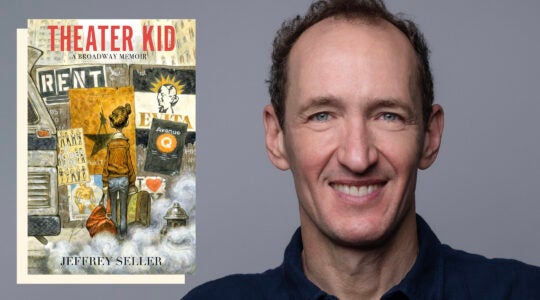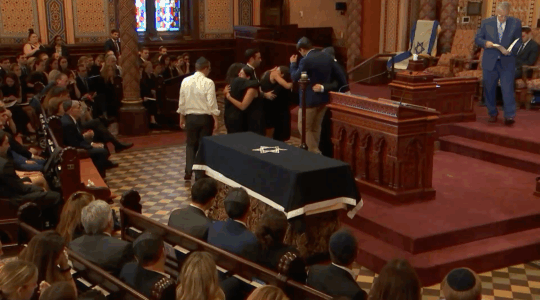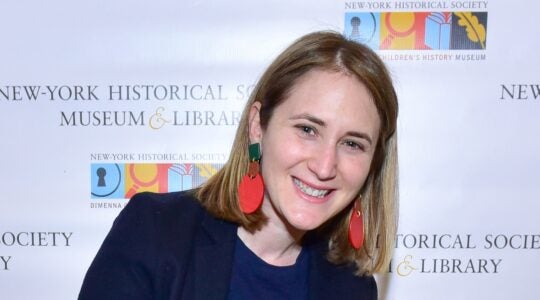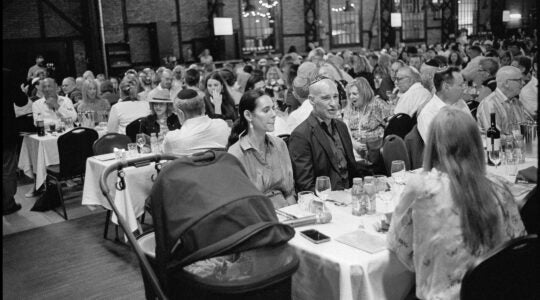Rabbi Jonathan Sacks, the former chief rabbi of the United Kingdom and a prolific author and public intellectual, died Nov. 7 in London. He was 72. His longtime American editor remembers his gifts as a writer and teacher:
The first time I met Rabbi Sacks was probably in the fall of 2004, at a meeting in Manhattan of the Carnegie Council for Ethics in International Affairs. He was the guest lecturer, and his literary agent, the wonderful Louise Greenberg, had arranged for me to attend and then to meet up with him after his presentation.
This was to be a brief “getting to know you” conversation, as I very much wanted to publish Rabbi Sacks’s work at Schocken Books and Louise quite properly thought Rabbi Sacks should have the opportunity to evaluate the cut of his potential American editor’s jib.
I had been so impressed by “A Letter in the Scroll” and “The Dignity of Difference,” and I came prepared with many complimentary things to say about those books and the ideas he had expressed in them. But I’d never heard him lecture, and I was, literally, left speechless. The topic was contemporary ethics — not your typical barn-burner of a subject —but his mesmerizing delivery and perfectly formed sentences and paragraphs, the seemingly effortless way he quoted not only the Bible, the Talmud, and medieval Jewish commentators but also 18th-century English and French philosophers, Renaissance poets and ancient Greek and Roman scholars left me awestruck.
I managed to stumble out something about how wonderful I thought his lecture was, and how much I looked forward to having him as a Schocken author. He smiled politely and went back to discussing John Locke, David Hume, Jean Jacques Rousseau and Maimonides with the members of the Carnegie Council, all of whom appeared to be as dazzled as I was, but who had enough wits about them to pursue conversations with Rabbi Sacks on the philosophy of ethics in Jewish, Christian and secular thought.
Despite that less-than-auspicious beginning to our professional relationship, it was my privilege to have published four of Rabbi Sacks’s books at Schocken — “To Heal a Fractured World,” “Future Tense,” “The Great Partnership” and “Not in God’s Name.” But it felt odd for me to say that I was Rabbi Sacks’s American editor (his books were all first published in the United Kingdom) because his manuscripts didn’t really need editing. They came to me perfect in every way — not a comma or a semicolon out of place, not a dangling participle or misplaced modifier in sight. If all of my authors were as talented as Rabbi Sacks was, I would be out of a job.
I did perform other editorial tasks on his books — working with jacket designers, writing descriptive copy, presenting his books to my publicity, marketing and sales colleagues at planning meetings. But the cherry at the top of the editorial cake was accompanying Rabbi Sacks when he came to the United States for book events and appearances. He did, of course, have one of our publicists assigned to him, but I wasn’t going to miss the opportunity to tag along and have a front-row seat as Rabbi Sacks worked his oratorical magic on standing-room-only crowds of adoring fans.
His messages were pretty consistent: That our responsibility as human beings is to partner with God in the ongoing struggle to make our world a more ethical, moral, and compassionate place. That scientific knowledge and religious knowledge are not opposing forces, but complement each other in our understanding of how God’s world works. (“Science explains to us how we got here. Religion teaches us why we are here.”) That we are obligated as Jews to treat people of other faith traditions and people with no religious beliefs at all with respect and dignity. That the Torah is the basis for our understanding of what it means to be human. That we acknowledge God’s presence in our lives through Torah study and prayer but also through joy and song and love. And, most important of all, that we must do all we can to prepare the path for the generations that will come after us.
His genius was in his ability to perfectly tailor these messages to whatever audience he was addressing.
Rabbi Sacks’s genius was in his ability to perfectly tailor these messages to whatever audience he was addressing. Whether it was at the 92nd St. Y; at the Columbia/Barnard Hillel; at events sponsored by Harvard, Princeton, or Yale; in public dialogue at New York University with Cardinal Edward Egan; in conversation at Yeshiva University with Stern College women and Rabbi Yitzhak Elchanan semicha students; at Jewish Community Centers throughout North America; at a Chabad convention in Crown Heights; giving the opening benediction on the floor of the U.S. Senate; or exchanging witticisms with HRH Prince Charles (had they decided to leave their day jobs, either of them could have made a pretty good living as a stand-up comic), I watched as Rabbi Sacks’s words went straight into the hearts and minds of the people who packed the halls to hear him, leaving them challenged, inspired and spiritually uplifted.
Rabbi Sacks read more books published by Penguin Random House (Schocken’s parent company) than I could ever hope to read to in a lifetime. His knowledge of classical music was profound. He loved going for long walks in Central Park with his beloved wife, the extraordinary Lady Elaine. The impression he made on my colleagues during a visit to our Penguin Random House offices was one that I will never forget. When he led the Ma’ariv service at a synagogue on Long Island after a book event there, I had tears in my eyes. Rabbi Sacks was my lodestar and role model for how to live a meaningful and righteous life in both the religious world and the secular world. I will miss him more than I can say.
Altie Karper is the editorial director of Schocken Books, a division of Penguin Random House LLC.
The New York Jewish Week brings you the stories behind the headlines, keeping you connected to Jewish life in New York. Help sustain the reporting you trust by donating today.




